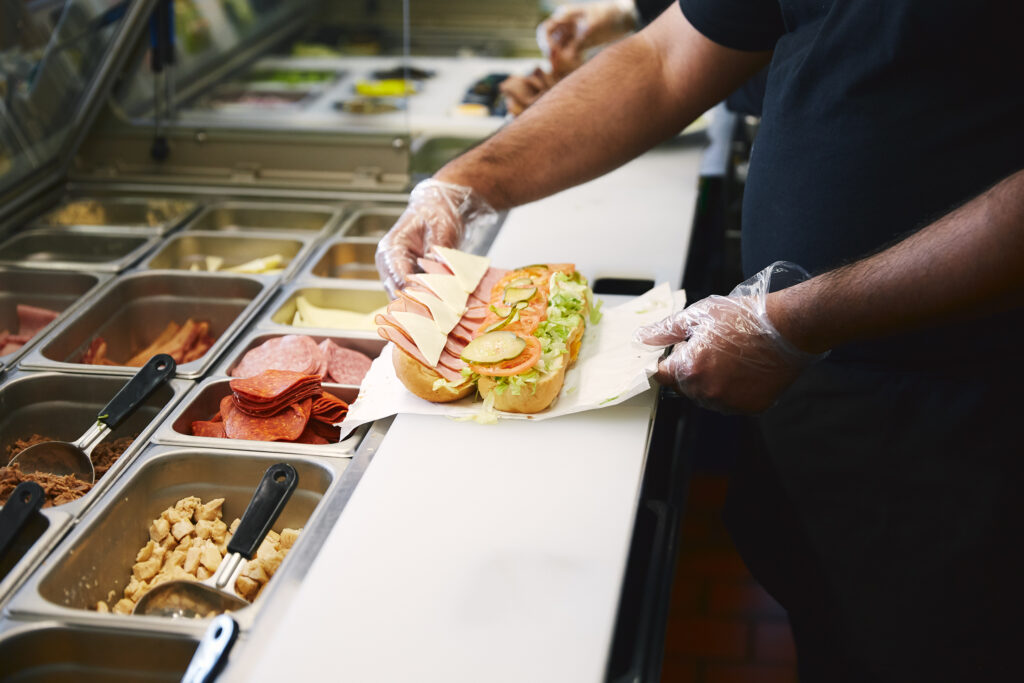Say one of these, and you might just get a cold Southern stare—or worse.

You might think you’re just being friendly or making casual conversation, but in the South, certain phrases can stop a chat in its tracks—or even offend someone deeply. What sounds perfectly fine in a Northern state might carry an entirely different tone or implication once you cross the Mason-Dixon Line.
Southerners have their own rhythm, their own code of politeness, and a strong sense of identity rooted in culture, hospitality, and tradition. If you want to avoid awkward moments or those legendary Southern side-eyes, steer clear of these 16 common phrases that tend to rub Southerners the wrong way.
1. Call everyone “you guys” and Southerners might think you’re being impersonal.

Down South, “y’all” is more than just a contraction—it’s a symbol of warmth, hospitality, and inclusivity. When someone from the North says “you guys,” it can feel cold, formal, or even slightly exclusive. It may sound like you’re only talking to the men in the group or like you’re keeping emotional distance. Southerners are famously friendly, and language that doesn’t reflect that closeness just doesn’t sit well, Beth Ann Fennely of The Bitter Southener reported.
Switching to “y’all” shows you’re open to blending in and that you respect the way folks communicate here. It’s not just a word—it’s a cultural gesture. You’ll likely find people smiling a bit more when you use it, and conversations will feel more natural. If you’re aiming to build rapport quickly, this one-word swap makes a bigger difference than you might think.
2. Say “whatever” and Southerners might think you’re brushing them off.

“Whatever” is the verbal equivalent of rolling your eyes, and that’s how it’s usually taken in the South. While it might be a quick way to end an argument or dismiss something in the North, here it comes across as dismissive, disrespectful, and even childish. Southerners are big on courtesy, even when they disagree, as per Matt Davis of Big Think. They’d much rather hear a thoughtful disagreement than a careless brush-off.
Instead of using “whatever,” consider responding with something like, “That’s an interesting point” or “I’ll have to think about that.” These alternatives keep the conversation open without shutting someone down. It’s a more gracious way of disagreeing, and you’ll likely be respected for your tact and your effort to be considerate, even in disagreement.
3. Use “bless your heart” sarcastically and you might get called out.

To outsiders, “bless your heart” might sound sweet and harmless, but in Southern culture, it’s a phrase with layers, according to Georgia McCartney of Bolde. When said sincerely, it can express real sympathy or compassion—like when someone shares sad news or reveals a hardship. But when used sarcastically, it can carry a heavy dose of condescension. Think of it as the Southern way of saying, “You poor fool.”
When a Northerner tries to mimic this phrase sarcastically, it often misses the nuance entirely and just sounds mean. If you’re not fully tuned into how and when Southerners use this phrase, it’s best to leave it out altogether. Stick to straightforward kindness, and you’ll be far less likely to offend someone who’s mastered the subtle art of Southern shade.
4. Tell someone to “calm down” and it will almost never go over well.

“Calm down” is one of those phrases that never works, no matter how you say it. But in the South, it feels especially tone-deaf. That’s because Southerners take pride in maintaining a respectful, composed demeanor. Telling someone to calm down implies they’re losing control—and it often escalates the situation rather than diffusing it.
A better way to handle tension in the South is to lean into empathy and gentle reassurance. Try saying, “Let’s take a second,” or “We’ll sort this out.” These alternatives acknowledge the emotional moment without patronizing the other person. In Southern culture, preserving someone’s dignity is paramount—even during a heated conversation.
5. Say “I don’t have time for this” and you might seem cold and dismissive.

Time moves a little differently in the South. Patience, good manners, and taking a moment to connect with others are part of the region’s DNA. Saying, “I don’t have time for this” is a sure way to come off as dismissive, rushed, and maybe even rude. It can make people feel like you’re too busy to treat them with common decency.
Even if you’re genuinely in a hurry, framing it differently can keep things civil. Say something like, “Can we pick this up later?” or “I want to give this the time it deserves.” These phrases maintain politeness while respecting your own schedule. Southerners are far more likely to respond positively when they feel acknowledged rather than brushed aside.
6. Mention “that’s not how we do it up North” and expect some side-eye.

Nothing gets a chilly response in the South quite like comparing it unfavorably to the North. This phrase may seem innocent—maybe even helpful—but it often sounds like a veiled insult. It can come across as, “Your way is wrong, and my way is better,” which doesn’t go over well in a region that takes pride in its traditions.
If you’re encountering something new, frame your observations with curiosity rather than comparison. Saying, “That’s different from what I’m used to” or “I’ve never seen it done this way before” keeps things respectful. Southerners love to share their way of life, and if you show interest rather than judgment, you’ll be welcomed warmly.
7. Admit “I don’t like sweet tea” and it might feel like you’re rejecting Southern culture.

Sweet tea in the South isn’t just a beverage—it’s a cultural staple. Refusing it outright or expressing strong dislike can sound like you’re rejecting a cherished part of Southern life. Even if you’re not into sugary drinks, the way you express that matters. A blunt “I don’t like it” can land poorly.
Instead, try softening the sentiment with something like, “It’s a bit sweet for me, but I get why y’all love it.” That shows you respect the tradition, even if it’s not your personal favorite. Better yet, accept a small glass and take a polite sip—you might just find a version you actually enjoy.
8. Say “you talk funny” and you might insult someone’s pride.

Telling someone they “talk funny” is never a good look, and in the South, it can come off as deeply disrespectful. Many Southerners are fiercely proud of their accent—it’s a reflection of their heritage, their region, and their family roots. Critiquing it, even as a joke, can sting more than you realize.
If you find a Southern accent charming or unique, there are better ways to express it. Try saying, “I love how friendly your voice sounds” or “Your accent makes everything sound more welcoming.” Framing it as a compliment rather than a critique will win you far more points—and avoid hurting anyone’s feelings.
9. Call something “not very smart” and Southerners might see it as unnecessarily harsh.

Southerners are all about grace and diplomacy in conversation. That’s why blunt criticism—especially phrased as “not very smart”—can come across as harsh or mean-spirited. It’s not just what you say, but how you say it that matters. The same critique, softened with tact, can be much more palatable.
Instead of labeling something unwise, consider offering a suggestion. Say, “Have you thought about trying this instead?” or “I’ve seen another approach that works really well.” These alternatives maintain the Southern standard of respect and thoughtfulness, even when offering a differing opinion.
10. Admit “I’m not a fan of country music” and you might lose cool points.

Country music is more than entertainment in the South—it’s a storytelling tradition, a cultural touchstone, and for many, an emotional connection to home and heritage. Saying outright that you don’t like it can feel like you’re dismissing something that matters deeply to a lot of folks.
If it’s not your jam, you can still express that without sounding critical. Try saying, “I’m more familiar with other genres, but I’m open to hearing more country songs.” That keeps the door open for sharing and conversation. Who knows? A road trip with the right playlist might just change your mind.
11. Ask “why are you so dressed up?” and it might sound like you’re judging.

In many parts of the South, looking sharp isn’t just for special occasions—it’s part of the culture. Whether it’s Sunday best, going to the grocery store, or attending a backyard cookout, Southerners often take pride in their appearance. Asking why someone is dressed up can come off as critical or confused.
A better approach is to offer a compliment. Say, “You look amazing!” or “I love your style.” It acknowledges their effort and makes them feel good rather than put on the defensive. Compliments are part of the Southern charm—and giving one is a fast track to being seen as polite and thoughtful.
12. Say “hurry up” and it’ll go against the South’s relaxed pace.

Life moves slower in the South, and that’s by design. The culture prioritizes patience, connection, and savoring the moment. Telling someone to “hurry up” doesn’t just sound impatient—it can feel downright rude, as if you’re putting your own agenda ahead of basic courtesy. Southerners don’t like to be rushed, and they certainly don’t like being told to pick up the pace.
Instead, if you’re on a schedule, try something more respectful like, “Just let me know when you’re ready.” That small shift makes you sound easygoing and considerate, two traits that Southerners admire. Embracing the slower pace, even temporarily, might just help you appreciate the charm and hospitality of Southern life a bit more.
13. Mention “we don’t do things that way where I’m from” and risk offending Southern pride.

Southerners are deeply proud of their customs, traditions, and way of life. So when someone from outside the region says, “We don’t do that where I’m from,” it can easily sound like criticism, even if that’s not the intention. It implies their way is backward or inferior—which will never go over well.
A more respectful way to highlight differences is with curiosity and open-mindedness. Try saying, “That’s new to me—can you show me how y’all do it?” This not only avoids offending anyone, but it also shows that you’re genuinely interested in learning. That kind of attitude is welcomed with open arms, and you might even pick up a few new habits worth keeping.
14. Say “bang a ‘Uey’ and Southerners will think you’ve lost your mind.

This quirky Northern phrase for “make a U-turn” is usually met with blank stares—or nervous laughter—in the South. “Bang a ‘Uey’” sounds more like something from a cartoon than an actual driving instruction, and it’s simply not part of the Southern vocabulary.
If you need to give or follow directions, it’s best to stick with plain language like “turn around” or “make a U-turn at the next light.” That keeps things clear and avoids the confusion that comes from regional slang. It’s not about erasing where you’re from—it’s about communicating in a way that makes sense where you are.
15. Mention “mud season” and Southerners might think you’re exaggerating.

Mud season is a real thing up North—usually a messy consequence of snow melting in early spring. But in the South, it’s not part of the seasonal experience. Mentioning it might confuse people or make you sound dramatic. Instead of painting a mental image of sludge-covered boots and knee-deep puddles, try to relate in terms that make sense locally.
Talk about spring rains or the shift to warmer weather. Everyone understands changing seasons, even if they don’t include slushy roads. By adapting your language a bit, you’ll connect more easily with Southerners who aren’t battling icy sidewalks or melting snowdrifts every year.
16. Order a “grinder” instead of a sandwich and you’ll get blank stares.

If you’re craving a sub in the South, don’t ask for a “grinder.” This distinctly Northeastern term just doesn’t exist down here. In fact, ordering a grinder might lead to a confused look or an awkward pause at the counter. Southerners generally say “sub,” “hoagie,” or just plain “sandwich.”
To avoid confusion and get the meal you’re hoping for, stick with the common terms locals use. Adapting your language a little bit in public settings like restaurants goes a long way toward fitting in—and making sure you don’t go hungry because of a regional mix-up.
